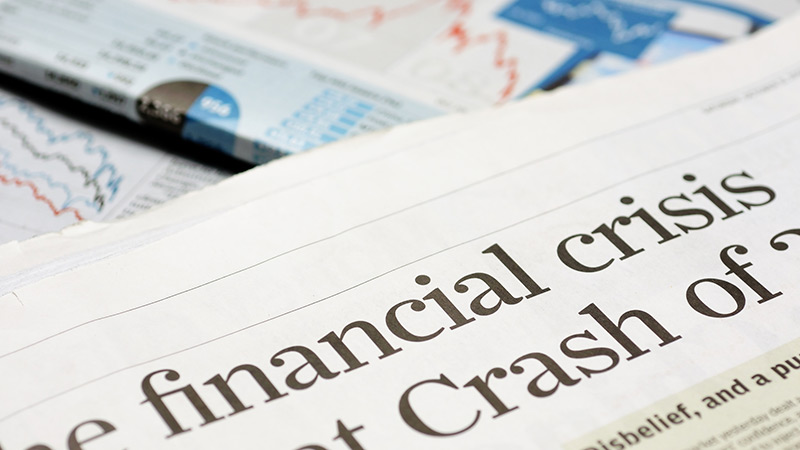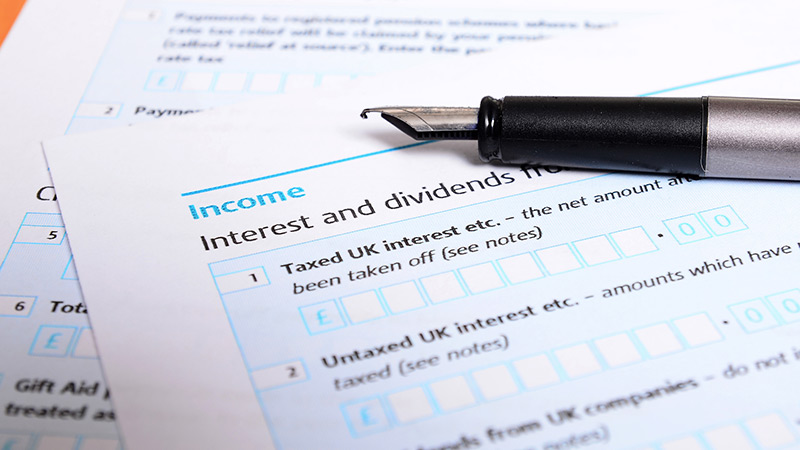
This content is for information and inspiration purposes only. It should not be taken as financial or investment advice. To receive personalised, regulated financial advice please consult us here at Elmfield Financial Planning in Padiham, Burnley, Lancashire.
Throughout your lifetime you are likely to witness many stock market crashes. Looking back at history, they have occurred an average of one or two times per decade. The latest was the 2020 COVID-19 crash. Prior to that, events included the 2018 “cryptocurrency crash”, the 2010 “flash crash” and, of course, the 2008 Financial Crisis. This can be a highly emotional experience for investors, who typically witness their portfolios also plummet in value – leading to a strong desire to sell and “cut the loss”. However, doing so typically just crystallises your losses and prevents your portfolio from recovering with the markets later.
In this article, our Lancashire-based financial planning team here at Elmfield Financial Planning offers some thoughts on how investors can prepare themselves for a stock market crash – both financially, and emotionally. We hope you find this content useful. If you’d like to speak to an independent financial adviser then you can reach us via:
T: 01282 772938
Recognise that timing is futile
As much as many of us fancy ourselves to be “great investors” who can “time the market”, the reality is far different. Not even professional fund managers anticipated the market crash from March 2020 as COVID-19 swept the globe. Looking back with hindsight, it is easy to think that the events could have all been predicted and investors could have “sold at the top” of the stock market, waited and then “bought the dip” to make huge gains. Yet, at the time, nobody knew what would happen. Even in “good” times, very few people can beat the market. This study, for instance, shows that even 58% of active fund managers fail to outperform the S&P 500 index over a 1-year period. Over 10 years, moreover, the figure rises to 82.5%.
Instead, consider spending time in the markets rather than trying to anticipate the next crash. This leads to a few suggestions. Firstly, if you have a lump sum ready to invest, speak to your financial adviser about the best way to commit it to your portfolio. For instance, you could put smaller sums in gradually (e.g. monthly) rather than all at once, which may then be followed by a stock market crash. Secondly, review your strategy carefully. Are you currently investing lots into individual stocks, for instance? If so, you could be exposing yourself to more diversification risk compared to, say, investing in strong index funds.
Avoid credit when investing
Do you know what made the 1929 Great Crash so horrific for so many people? It was partly because many individuals borrowed money to invest. The Florida land boom of the 1920s (which went bust in 1925–1926) is an example of this thinking – whereby investors bought land, which they’d never visited, using credit so they could later sell for a profit. When the New York Stock Exchange (NYSE) lost 11% of its value on 24th October (“Black Thursday”), investors started to panic. Not only did many lose their initial investment, they also owed money which they could not afford to repay.
Today, many platforms allow you to invest using leverage (x5 of your initial investment, using borrowed money) and this is usually a dangerous path. Most will lose money very quickly as they pursue “quick wins” – e.g. through cryptocurrency investments. Others think about using a 0% credit card to borrow a lump sum, and invest it. Whilst some people get lucky with these kinds of tactics, they also put you at serious financial risk during a stock market crash. Avoid.
Maintain protection & perspective
You cannot predict a stock market crash. Yet you can prepare yourself – financially and also emotionally – for when it happens. With your finances, it helps to have a strong set of financial protection measures in place to maintain your household should negative events occur. For instance, having 3-6 months’ of living costs in an easy-access savings account can help see you through a spell of unemployment, or cover an unexpected expense (e.g. a broken boiler). Income protection, life insurance and critical illness cover can also help should you – or someone you love – die or become ill/injured and unable to work. These measures can reduce the temptation to pull out your investments during a crash, to cover short-term expenses.
Another good idea to stop yourself timing the market is to try and solidify a strong “investor mindset”. This involves developing a long-term perspective about your portfolio. For example, if you have 30+ years before you need to access your money, then it should not matter if stock market crashes happen during this period. Provided your portfolio grows overall in value (which it should do, with the right strategy) then you can simply endure the short-term volatility along the way. You should also ask yourself regularly: “How would I feel and what would I do if my investments suddenly fell, say, 25%?” If you believe you would face a strong temptation to sell, then your investments may not properly reflect your risk appetite. In which case, it may be time to speak to a financial adviser about changing the portfolio strategy. If you need to access your money in the next few years, for instance, then it may be appropriate to start “de-risking”.
Invitation
If you are interested in starting a conversation about your own financial plan or investments, then we’d love to hear from you. Please contact us to arrange a free, no-commitment consultation with a member of our team here at Elmfield Financial Planning in Padiham, Burnley, Lancashire.
Reach us via:
T: 01282 772938

